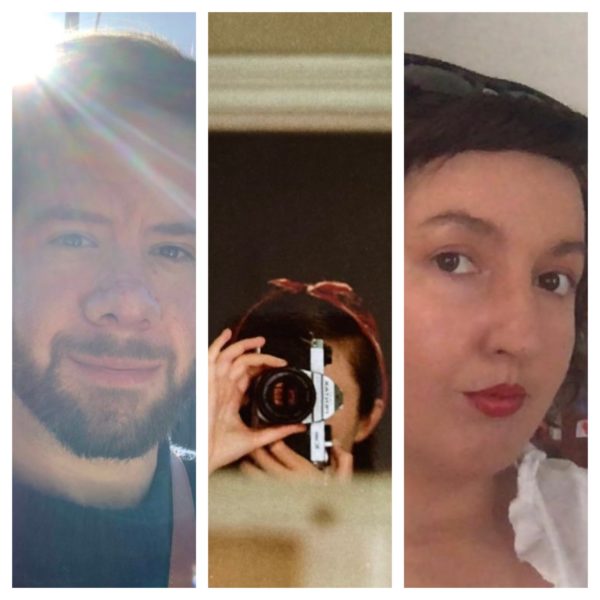
Ellen: Both of you have consistently engaged with cultural elements—including film, music, literature, and other artforms—throughout your writing careers. What drew you to writing about culture?
Declan: Passion. As a writer it’s a source of both pain and pleasure to hear Mavis Staples sing ‘I Have Learned to Do Without You’, or to watch Andrzej Żuławski’s Possession, and think how far anything you write will be from effecting that kind of devastation. But equally, there’s a challenge in trying to communicate what that devastation feels like. Writing about culture means having the opportunity to write about many different mediums. It can help you to write from a different angle, to see differently—which also means learning to feel differently.
Anwen: I was a music-obsessed teen and pre-teen, and reading the music press—especially publications like NME—made me interested in writing about culture. I’m just old enough that my adolescence took place in a pre-file-sharing era, and long before any platforms like YouTube or Spotify existed, which meant that there was always a time lag between reading about something and being able to hear it. Sometimes that lag would be years long, depending on how obscure the record might be, and how long it took you to track it down. But the time lag was imaginatively productive: you’d read a review of a record or a gig, and you’d have to imagine what it sounds like—that’s all you had. It’s that imaginative interchange between critic and reader that still interests me: writing something in such a way that the person reading feels inspired to seek out the work and make up their own mind.
Ellen: What pieces of cultural criticism have recently caught your eye? What is it about the authors’ points of view that is so enticing?
Anwen: “Enticing” is an interesting word, isn’t it? It carries intimations of seduction, of pleasure. I don’t always need my experience of cultural criticism (or of culture) to be pleasurable, though pleasure can be an aspect of the experience. A well-made negative review, for instance, can be very pleasurable, both for writer and reader, like Andrea Long Chu’s review of Maggie Nelson’s On Freedom, or this barnstorming essay by Ursula Robinson-Shaw. I like wit in a critic, and I like flair—someone who can deliver both a sentence and an argument with style. Polemic is fun, but wit is crucial to it: po-faced, self-serious polemic is dreary for all concerned. I think my favourite literary critic is Terry Castle, who is one of the wittiest essayists I’ve ever read, and who is brilliant at making herself one of the subjects of the joke.
Declan: During the holidays, I read the introductions to two of Cynthia Ozick’s earliest collections of criticism—Art and Ardor and Metaphor & Memory—and kept shaking my head at how good they were. You can’t help wondering how she writes like that, at a level where each line is a joy—and then realising, no, wait, it’s each paragraph that’s a joy, and then while you’re marvelling at that, you have to admit that in fact it’s the whole thing. She’s very good on the commonalities in fiction and criticism. I also enjoyed Hanif Abdurraqib’s essay on Gimme Shelter and Merry Clayton, from his collection A Little Devil in America: In Praise of Black Performance.
Ellen: What do you hope aspiring cultural critics will learn during the Writing About Culture course?
Declan: An appreciation for language and a willingness to get started, to have a practice. Also, to be vigilant about writing and how it works. To find joy in the blank slate—the constant refreshing of possibility that occurs each time we begin writing. My greatest hope is that anyone who completes the course will learn something about reading and writing that can’t be prescribed in advance.
Anwen: I hope we can remind ourselves that we’re forever learning and forever trying (and failing). No writer ever reaches a point where writing becomes easy—it only becomes harder, because the more you learn and practice, the higher your standards. I want us to always keeps our minds and ears and eyes open to new things and new perspectives.
Writing About Culture
with Declan Fry, Anwen Crawford and Ellen O’Brien
ONLINE
4 May – 27 July 2023